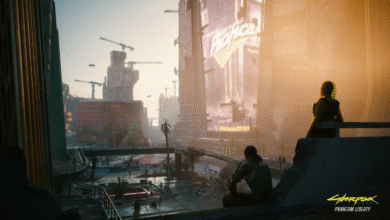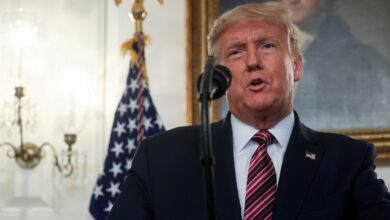The Rings of Power Season 1 Review: Puzzle-Box Origin Story for The Lord of the Rings

The Lord of the Rings: The Rings of Power — Amazon’s millennia-prior prequel that draws from the appendices of J.R.R. Tolkien’s three-volume novel — was, in some ways, doomed from the very beginning. Years before cameras began rolling, it gained the notorious tag of being the world’s most expensive TV series. Amazon had made a billion-dollar five-season commitment, forking over $250 million (about Rs. 2,057 crore) for the rights alone. By the time cameras were done rolling on The Rings of Power season 1, it had spent another $465 million (about Rs. 3,826 crore) on the “infrastructure that will sustain the whole series.” Its inexperienced creators, showrunners and head writers, J. D. Payne and Patrick McKay, have mapped out all five seasons. They even know their final shot.
But it seems they overlooked what comes before the destination: the journey. While The Rings of Power season 1 finale was impressive and emotional in parts, the season as a whole got off to a poor start, with episodes that were all over the place and struggled to properly set up its ensemble cast. In the age of anti-heroes and morally-grey characters, it’s tougher than ever to write about black-and-white individuals who dominated Tolkien’s Middle-earth. And The Rings of Power never displayed those layers or credentials. On top of that, none of the storylines were engaging from the start. All it gave us was a tease of the big bad — mimicking the montage-like prologue structure of the first film, The Lord of the Rings: The Fellowship of the Ring — before settling in for what feels like a 50-hour slog.
Not a lot happens a lot of the time. I must admit I’ve already blanked out on many episodes, even though I watched The Rings of Power season 1 on a weekly basis, rather than binge-viewing it. Most of the episodes — save for Friday’s finale, and episode 6 — were just listless. By comparison, and I do agree it’s a very different show, the Game of Thrones prequel spin-off House of the Dragon has some memorable episodes; ones that can be defined by what they stand for. There’s little drive or momentum towards a goal in The Rings of Power. In The Lord of the Rings film trilogy, we were witness to the Battle of Helm’s Deep five hours in. Five hours into The Rings of Power, we saw the series tread water.
House of the Dragon Episode 8 Review: Viserys’ Final Game of Thrones
![]()
Lloyd Owen as Elendil, and Maxim Baldry as Isildur in The Rings of Power season 1
Photo Credit: Matt Grace/Prime Video
The shadow of Peter Jackson’s magnificent award-winning trilogy — considered among the most influential films ever made — certainly hangs over The Rings of Power. Despite Amazon stating that this series would be its own thing as it’s set thousands of years ago, and the Tolkien Estate deal specifying that it couldn’t be directly related to the book or the films, there are several characters here whom we’ve previously known. Except younger.
There’s the Elven warrior Galadriel (Morfydd Clark), who’s more or less the protagonist of The Rings of Power. She goes on to be the Lady of Lothlórien, as played by Cate Blanchett in the Lord of the Rings trilogy. The half-Elven politician Elrond (Robert Aramayo) anchors another storyline. He goes on to be the Lord of Rivendell, portrayed by Hugo Weaving in the films. And then we have Númenórean sailor Isildur (Maxim Baldry), who goes on to be King of Arnor and Gondor, played by Harry Sinclair for a few minutes in The Fellowship of the Ring. Who knows how many more might pop up in future seasons.
But nothing says you’re trying to cash in on the success of the Lord of the Rings films than The Rings of Power’s ultimate villain. They have literally the same antagonist: Sauron. After a brief tease at the start, just as with the movie trilogy, he mysteriously disappears. There’s no symbolic fiery omniscient Eye here — he’s just gone. That hollowness is intentional, for The Rings of Power season 1 hangs itself around the suspense of Sauron’s true identity. Take a trip around the Internet, and you will notice that a majority of the discussion about the first season during its six-week run revolved around “Who is Sauron?”
Would it be Adar (Joseph Mawle)? The tortured and twisted Elf — labelled Moriondor (sons of the dark) by Galadriel, but who prefers to call himself Urûk — is certainly the only visible leader of the Orcs in The Rings of Power season 1. It’s thanks to his human trafficking and slave labour efforts that Mount Doom is awakened, and the Southlands are transformed into Mordor. But in The Rings of Power episode 6, he admits to Galadriel that he “killed” Sauron, which more or less ruled him out.
The 7 Biggest TV Shows in October on Netflix, Prime Video, and More
![]()
The Stranger (Daniel Weyman) is not who they think he is
Photo Credit: Ben Rothstein/Prime Video
Would it be The Stranger (Daniel Weyman)? After all, there’s no seeming importance to the Harfoots storyline beyond the mystery of “Who is this man that fell from the sky in a meteor?” And it’s not just the audience who thought he could be Sauron. The mysterious white-robed trio — identified off-screen as The Ascetic (Kali Kopae), The Nomad (Edith Poor), and their staff-wielding leader The Dweller (Bridie Sisson) — think The Stranger to be Sauron as well. As it turns out, this was misdirection on the part of The Rings of Power. He’s not Sauron, he’s Istar. The wise one or wizard, as The Stranger later says. If that clue isn’t enough for you, he’s young Gandalf, played by Ian McKellen in the films.
Or would it be Halbrand (Charlie Vickers)? Galadriel runs into the Southland deserter early into The Rings of Power season 1, before it’s hinted that he might be the lost King of the Southlands. Wait, aren’t those the very lands that serve as the future home of Sauron and his Orcs? It was also curious that Halbrand has been created specifically for this series. He had no place in The Lord of the Rings books. In the season 1 finale, after Galadriel hears the great Elven smith Celebrimbor (Charles Edwards) use words previously used by Adar, she discovers that the Southlands’ line of descent ended a thousand years ago. Halbrand isn’t who he claims to be — he’s Sauron.
The best TV shows of all time, from The Wire with its socio-political examination of Baltimore, to the aforementioned fantasy epic Game of Thrones, and from the anti-hero tragedy Breaking Bad to mobster-in-therapy masterpiece The Sopranos, have shown that it’s the interplay between deeply layered characters that is the heart of a long-running series. Instead, The Rings of Power season 1 opted for a more puzzle-box approach — reminiscent of Lost (mysterious island), Westworld (human or android?), and Severance (what is this office?). The creators of The Rings of Power encouraged theories around who Sauron might be, and Amazon even promoted the finale as the big “reveal of Sauron.”
Black Adam to Ram Setu, the 7 Biggest Movies in October
![]()
Charlie Vickers as Halbrand, who turns out to be Sauron, in The Rings of Power season 1
Photo Credit: Matt Grace/Prime Video
That’s not to say this kind of thing cannot work — Lost and Westworld had their highs, and Severance has been brilliant in its only season so far — but it feels like such an unnecessary and backwards approach to get people to talk about a mega-budget fantasy series with several characters and parallel storylines. As I said before, what we should’ve gotten were journeys. Game of Thrones understood this, with some of its best storylines happening during travels. But on The Rings of Power season 1, nothing worthwhile happens in the middle. The Harfoots migrate; Galadriel, Halbrand, and Isildur go from Númenor to Southlands; and Elrond and the Dwarven prince Durin IV (Owain Arthur) make multiple trips between Lindon and Khazad-dûm. It’s all point A to point B — origin to destination.
The season-long backstory for Sauron colours in the lines, but no one asked for this. Sauron is inherently interesting for he is pure evil. It doesn’t really matter who he used to be. But The Rings of Power was set on “building a relationship between Sauron and Galadriel”, as Payne put it. And given the season 1 finale shot of “Halbrand” looking over Mordor and Mount Doom, The Rings of Power seems set to give us even more backstory in season 2, with executive producer Lindsey Weber more or less noting that Sauron will be “openly on the move and working his plans.”
Maybe we ought to have expected this. After all, The Lord of the Rings prequel spin-off is called The Rings of Power. The Elves may be the first to create their three rings — as happened at the very end of the season 1 finale — but it’s Halbrand/ Sauron who gives Celebrimbor the idea to subdue mithril by alloying it. And in their hubris to retain their near-immortality, the Elves played a part in the start of something ominous. As we know from the prologue in The Fellowship of the Ring, and as hinted in the song that plays over The Rings of Power the season 1 finale credits, more rings will be made for Dwarves and Men. And ultimately, Sauron will secretly forge the One Ring to rule them all.
The Rings of Power Season 2 Has Begun Filming in the UK: Report
![]()
Charles Edwards as Celebrimbor, Robert Aramayo as Elrond in The Rings of Power season 1
Photo Credit: Ben Rothstein/Prime Video
Heck, this isn’t even the first time that Sauron’s backstory has been explored, or that other characters have been brought back. Jackson did it himself with the utter bore that was The Hobbit film trilogy, a prequel extension that no one had asked for. Thanks to its association with The Lord of the Rings, the Hobbit movies made nearly as much at the box office — nearly $3 billion (about Rs. 24,713 crore). But they aren’t remembered anywhere as fondly.
The Rings of Power has to be wary of falling into the same trap. Spending a billion dollars, having “The Lord of the Rings” in the title, and 25 million people tuning in for the premiere don’t make the show better. Amazon might be happy that it can add and retain several million Prime members over the course of The Rings of Power’s multiyear run. But if this show doesn’t course correct, The Rings of Power will be relegated to the appendices it came from.
All eight episodes of The Lord of the Rings: The Rings of Power season 1 are streaming on Prime Video worldwide. In India, The Rings of Power is available in English, Hindi, Tamil, Telugu, Kannada, and Malayalam.




